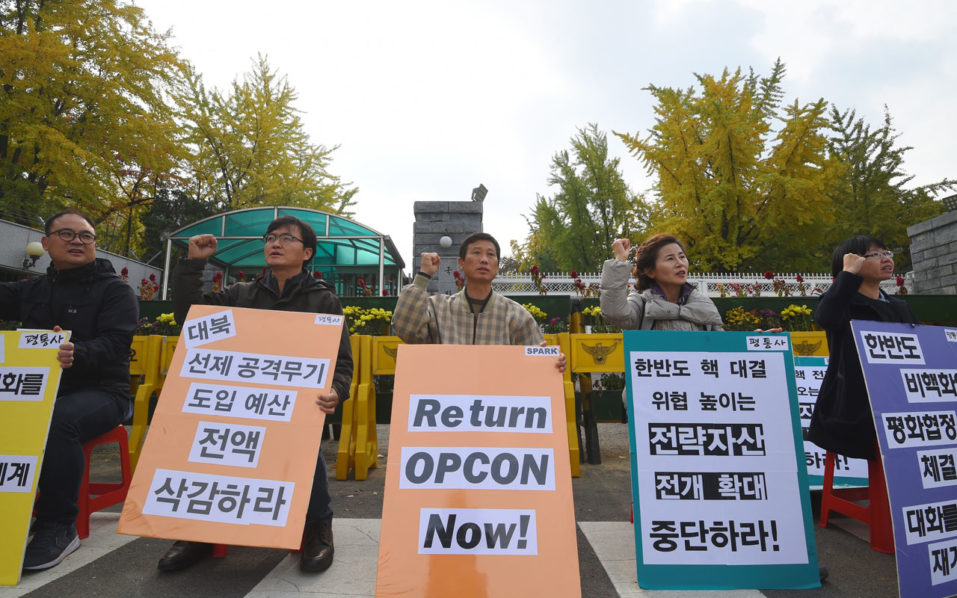
North Korea slammed US President Donald Trump as “incurably mentally deranged” in a personal attack ahead of his first visit to Asia, as South Korea’s leader insisted Washington could not take military action on the peninsula without his agreement. / AFP PHOTO / JUNG Yeon-Je
South Korean police will restrict public rallies near the country’s presidential palace during Donald Trump’s first visit as head of state, a report said Thursday, reducing his chances of being exposed to opposition.
It is the first time that Seoul has imposed limits on public gatherings since President Moon Jae-In, a former human rights lawyer, took power in May, according to the Yonhap news agency.
Organisers of around 50 protests — mostly anti-Trump rallies — applied to hold the demonstrations across Seoul but police turned down most requests to gather near the presidential Blue House, citing security concerns, Yonhap said.
Police granted two requests in the security area — one of them a pro-US meeting to welcome Trump — “to ensure freedom of assembly”, it added.
One of Moon’s campaign promises was restoring freedom of expression and assembly seen to have eroded under his conservative predecessor, Park Geun-Hye, who was impeached over a corruption scandal.
Heavy security is expected in the capital for Trump’s November 7-8 trip, during which he will hold a summit with Moon — whom he has accused of “appeasement” towards the nuclear-armed North — and visit a US army base.
The South is a key US ally and hosts 28,500 American troops, but many of Trump’s critics in the country see him as a warmonger whose war of words with North Korean leader Kim Jong-Un has escalated tensions.
The North conducted a sixth nuclear test in September and has launched multiple missiles capable of reaching the US mainland.
And the two leaders have traded threats and personal insults in recent months, heightening global alarm about potential conflict.
Trump is also due to visit Japan, China, Vietnam and the Philippines during his first Asia tour since taking office in January, with all eyes on his message to the North and Kim.
Police in Seoul did not immediately respond to requests for comment by AFP.



